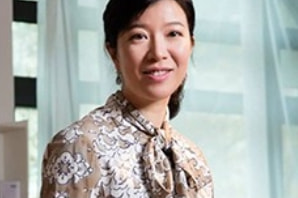浙江大学教授胡海岚获世界杰出女科学家奖
10/03/2021

浙江大学神经科学中心教授胡海岚因在神经科学尤其是抑郁症方面的重大发现,获得世界杰出女科学家奖。
据观察者网报道,9月30日,联合国教科文组织网站公布2022年度第24届世界杰出女科学家奖名单,胡海岚获奖。公告称,她的工作促进了新一代抗抑郁药物的研发。
世界杰出女科学家奖由联合国教科文组织和法国欧莱雅基金会于1998年设立,至今共遴选出122名获奖者,并在超过115个国家和地区资助和表彰3800余名具有潜力的青年女科学家,有“女性诺贝尔科学奖”之称。
公开资料显示,胡海岚是浙江大学求是高等研究员/医学院双聘教授、博士生导师,浙江大学神经科学中心执行主任。1973年出生,毕业于北京大学和加州大学伯克利分校,冷泉港实验室博士后。2008年回中国在中国科学院上海生命科学研究院担任研究员,2015年加入浙江大学。
据浙江大学网站介绍,胡海岚致力于研究情绪与社会行为的分子与神经环路机制,近六年来在情绪的神经编码、抑郁症发生的分子机制、以及社会等级的神经基础等方向,取得了一系列既有理论意义又有潜在应用价值的系统性原创成果。在《自然》、《科学》等顶级学术期刊发表过多篇论文。
联合国教科文组织描述胡海岚取得的科研成就:“胡教授因在神经科学(尤其是抑郁症)方面的重大发现而获奖。她的工作促进了新一代抗抑郁药物的研发。”
在胡海岚之前,有六位中国科学院院士先后获得过世界杰出女科学家奖这一荣誉,分别为电子显微学专家李方华、神经生物学家叶玉如、无机化学家任咏华、无机化学家谢毅、动物传染病及预防兽医学专家陈化兰和古脊椎动物学家张弥曼。
Professor Hailan Hu from Zhejiang University won the World Outstanding Female Scientist Award, promoting the development of a new generation of antidepressant drugs
MINNEWS
10/03/2021

According to the official website of UNESCO, the 24th World Outstanding Female Scientist Award was announced today. Among the five winners is a Chinese female scientist. She is Professor and Executive Director of Zhejiang University Neuroscience Center Hu Hailan.
Hu Hailan was awarded for major discoveries in neuroscience (especially depression), and her work has led to the development of a new generation of antidepressant drugs.
The award was established by UNESCO and the L’Oréal Foundation in 1998. 122 winners have been selected, and more than 3,800 promising young women scientists have been funded and commended in more than 115 countries. The prize is 100,000 euros per person. .
Congratulations to Professor Hu Hailan!
L’Oréal-UNESCO Awards for Women in Science recognize five women researchers for pioneering work in environmental and life sciences
10/03/2021
UNESCO and the L’Oréal Foundation are unveiling the winners of this year’s International Prize for Women in Science, which honours five eminent women scientists with exceptional careers from the five regions of the world, as it has done annually since 1998.
The importance of science in meeting the major challenges facing us become more compelling than ever in recent years and to be effective, science must draw on all talents.
UNESCO and the L’Oréal Foundation are therefore particularly proud to announce the five 2022 laureates, selected by an independent jury headed by Professor Brigitte Kieffer (laureate of the 2014 L’Oréal-UNESCO Award), for the 24the Women in Science International Awards in the category of life sciences and the environment.
Laureates of the 24th L’Oréal-UNESCO for Women in Science International Awards (€100,000 each)
Latin America and the Caribbean
Professor María Guadalupe Guzmán Tirado – Infectious Diseases
Director of the Research Center of the Pedro Kouri Institute (IPK), Institute of Tropical Medicine, Havana, Cuba
Awarded for her pioneering work to improve the understanding and treatment of dengue, also known as “tropical flu.” Dengue fever occurs mainly in the inter-tropics and is estimated to infect between 50 and 100 million people worldwide each year. Her research has led to a better understanding of its pathogenesis, treatment of its symptoms and prevention.
North America
Professor Katalin Karikó – Biochemistry
Adjunct Professor at the Perelman School of Medicine, University of Pennsylvania, USA, and Senior Vice President of BioNTech RNA Pharmaceuticals
Awarded for her outstanding contribution to the development of messenger RNA technology. Her work has led to the breakthrough in the development of vaccines against COVID-19.
Asia and the Pacific
Professor Hailan Hu – Neuroscience
Professor and Executive Director of the Neuroscience Center of Zhejiang University School of Medecine, China
Awarded for her major discoveries in neuroscience, in particular her work on depression, which has informed the development of next generation drugs for depression.
Africa and Arab States
Professor Agnès Binagwaho – Public Health
Professor of Pediatrics and Vice-Chancellor of Global Health Equity University, Kigali, Rwanda
Awarded for her crucial role in establishing a new public health care system for the most vulnerable in Africa, particularly in Rwanda. Her work has led to improved access to HIV, malaria and TB care.
Europe
Professor María Ángela Nieto – Embryology
Professor at the Institute of Neuroscience (CSIC-UMH), San Juan de Alicante, Spain
Awarded for her fundamental discoveries on cell differentiation during embryonic development. Her work has paved the way for the development of new therapeutic approaches in the treatment of cancer and its spread to other tissues.
Based on the conviction that the world needs science and that science needs women, UNESCO and the L’Oréal Foundation are committed to promoting women in science. In order to make them more visible, make their talent known and inspire vocations in future generations, the L’Oréal-UNESCO For Women in Science programme aims to accelerate the careers of women scientists and to fight against the obstacles they encounter.
According to the latest UNESCO Science Report published last June, the number of women pursuing scientific careers is growing, but it is growing too slowly: just over 33% of researchers worldwide are women and only 4% of Nobel science prizes have been awarded to women. These inequalities are even more marked in technology and artificial intelligence, where only 22% of professionals are women.
Since the creation of the For Women in Science programme in 1998, 122 laureates and more than 3,800 talented young scientists, doctoral and post-doctoral students, have been supported and honoured in more than 115 countries.
The L’Oréal Foundation is committed to helping women express their potential, reclaim control of their lives and contribute to society, through three areas of intervention: scientific research, beauty in solidarity, and climate change. UNESCO, the only UN specialized agency with a specific mandate in the sciences, has made gender equality a priority. Through its science programmes, it contributes to the implementation of the Sustainable Development Goals and helps developing countries build their scientific and technological capacity.
More information:
- L’Oréal-UNESCO For Women in Science Programme
- To be smart, the digital revolution will need to be inclusive: A statistical study on the place of women in science.



